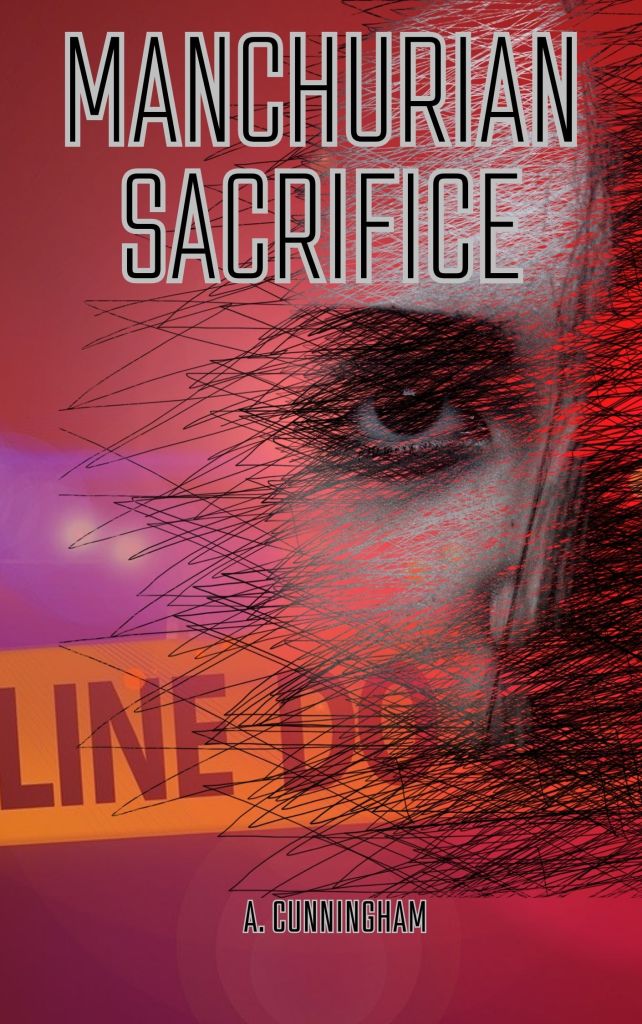
There comes a point in every apocalypse when everyone must ask themselves what the real price of survival is and whether it’s worth it. That point arrived for me about five minutes in. Crammed into my attic with the spiders, my cats and more bottled water than an environmentalist would approve of – which I admit, was not a masterpiece of planning on my part – I had nothing much to do but contemplate existence. I’d already gone through the blind panic stage, you see. That’s how I ended up in the attic with my cats and the water. And the perishables from my fridge. And some pot noodles. Which I can’t boil up.
Anyway, it was in those first four minutes in the dark of the attic breathing in the strange smells of a part of my house I’d never been in, all stale air and strange drafts and resin-y, woody oddness that I learned that true terror waxes and wanes. Like a moon. Or human existence on the planet. Although with that last one we didn’t so much wane as…well. You know.
The signs were all there. We even noticed them too. There was lots of chatter online. Articles were written; some of them were even true. Pundits talked. Argued. Issued apologies. Retracted apologies. Officials made statements. Press conferences were held daily. Influencers sold branded survival kits. It was all going on. But the slow slide toward Armageddon was a little on the quiet side.
A lot of whimpers, not so many bangs. Everyone had been expecting the bangs, see. What with the war. The epidemics. The state of the economy. Everyone knew we were headed for the skids. But when it happened it was so much like everything else people just got on with their lives. We’d all learned to live around the edges of disaster. We’d been doing it so long by that point.

Thinking about it, the big problem was that no one could imagine that this would be it. The real, proper end. We’d gotten used to living on the edge of destruction; I think we thought we’d always scrape on by. Still. We probably should have reacted faster to the ooze. And that thing with the eyeballs. In fact, definitely that thing with the eyeballs. That was just weird. And awful. I saw it happen in the supermarket. The eyeball thing. In the fruit aisle. Pop-squish, just like that all over the bananas.
It is frankly amazing how quickly you can get used to exploding eyeballs. I’d say it was horrifying, and probably, the internet’s fault. Most things are, after all. But the truth is I think it’s human nature. We survive, we adapt, we conquer, we multiply. Until we don’t.
No one was really surprised that the big finish for mankind was manmade. Who else was going to do us in, aliens? No, humanity was always going to be our own ruin. But it wasn’t the icecaps melting or the rainforests burning that did for us. That’s why we didn’t quite see the danger in front of us. I mean, how could we? It was all so unlikely.
At least that was the conclusion I came to in the final minute of the first five minutes of the apocalypse. Or, my personal apocalypse anyway. I don’t know what’s going on outside. I don’t know if there’s been a proper announcement. An “abandon all hope” sort of thing. There’s stuff going on below me, in the streets. I can hear that well enough. It might be ooze related. It had got into the waterworks last I heard. But it might not be. The apocalypse is multifaceted. Like an unholy amorphous squid of death and destruction. I mean that literally. That’s what happened in Liverpool.
The cats aren’t happy, but then neither am I. I’m afraid to die but the thought of facing what’s out there’s worse. I’ve come up here to die. I can admit it. A slow, isolated death is what I thought I wanted when I scrambled up the ladder, flailing about and whacking my knees and funny bone. It seemed like a good exit at the time.
My cats will probably eat me once I’ve starved or dehydrated to death. I should probably let them out. I think if any creature could survive this to inherit the Earth it’s the domestic shorthair. But I’m too afraid to move. Things make noises in here. I don’t know what they are. Some of it is pipework, I think. I didn’t think to cut off any of the utilities before scurrying up here. Didn’t see the point. There might be ooze in the pipes. There probably is. It’s everywhere else, after all.
What was that? Shattered glass. It sounded close. There’s a lot of shouting. It sounds really bad. Even the cats have shut up. I’m scared. The terror’s back, full wax. I don’t want to die. I liked my stupid little life. I like my eyeballs. I like the world. My thoughts are splintered. I’ve gone all Walt Whitman in fear. My brain contains endless contradictions. There’s no one going to come and save me and that makes me want to chew my own fingers off. But I’m equally petrified that someone will come. That I’ll be found, hiding here in the big empty dark of my attic. I forgot to bring the cat food and that – of all things – makes me cry.
I do it silently. I’ve seen the news. I’m afraid of what’s out there. Because the end was people, you see. And not even in the obvious way. This isn’t war. At least, not any sort that the army could deal with. They got outplayed, see. They didn’t know the rules of engagement. Well, the squaddies probably did. The higher ups not so much.

Oh, please. Oh, no. The broken glass. It was the back door. The glass one leading to the postage stamp patio and the cat-run I call a garden. I can hear movement in my house. I live alone. They’re here. At least someone is. More than one someone. Impossible to say if they’ve got their eyeballs.
Oh, No. No. No. No. I’m scared. I’m scared. I’m scared. I’ve been a coward all my life. I’m not ashamed to admit it. I spook easily. My imagination’s too quick; it’s the most active part of me and it’s showing me everything now. The intruders in my house, going room to room downstairs. My house isn’t big. Just a two-up, two-down and a single bathroom. And the attic with its completely obvious hatch in the ceiling. A hatch that even one of the Popped could see, I reckon, because I made a complete hash of getting up here. Least I had the sense to haul the ladder up with me and lay it across the hatch.
I wish I could just die, right now, explode my own heart with stress and check out early. I don’t want to be here. I’m scared. What am I supposed to do? There’s nothing to do is there? This is the end. It’s meant to be the end. It should be the end. But that’s the problem with the end. It’s not finished. Not yet. I want it over. I don’t want to be here. I’m scared. But I’m so afraid of it ending. Of me ending.
I’ve seen all the horrible ways the end has come for others. The internet was full of it. So many people filmed it. Hash-tag “Game Over” was everywhere, like it was some joke. Or a horrifying new trend that would die down along with its followers. No one really believed it would come for the rest of us.
There are definitely people in my house. They’re making noise. The floorboards beneath me are creaking. Someone just went in my bathroom. There’s this particularly creaky floorboard in there where the floor dips and groans a bit. I don’t hear voices. But I wouldn’t if its some of them. The Gamers. The helmets eat their voices. Only those in the ‘Zone’ can hear each other talk.
What will they do when they find me? And find me they will. Gamers know how to clear a level. They know how to find you out in every nook and cranny. Oh, sweet mercy. Shut up, cat! Don’t meow at the hatch. Please. Shut. Up. I’ll let you out once they’re gone, I promise. Don’t get me killed, Tom.
When everything was still just a crisis and everyone thought we’d limp through it like we had all the other crises, the news broadcast stories about Game Overs. Sometimes they filmed special forces going after the Gamers. I heard there was footage online of a few of them getting de-helmeted. I didn’t watch. I’d already seen a Pop-Squish. I didn’t want to see anymore. The helmets, once on, don’t come off, see. Gamers are all in the Zone. The ooze sustains them. No one figured out how in time to do anything about it. The developers were the first victims, see. A case of the ‘Author is Dead’ we really should have been more worried about. Because the game went on. And it got bigger.
I think they’re in the spare bedroom. I don’t know what they’re doing in there. It’s not an interesting room. I doubt there are any power ups to be had. Maybe that will be my salvation? My house is too boring to have any loot drops. The Gamers will leave. I’ll let the cats out, sneak downstairs and drink some bleach or something. Or find some medicine that will kill me gently. I don’t know.

I wish this was over. I wish someone would save me. I wish I could just turn off and let go and vanish without a thought. I’m scared. I’m so scared. I don’t know how to fight back. I don’t want to fight back. I want to go downstairs with my cats. I want the real world back with all its ignorable problems. But that’s all gone now. Only the Game remains.
There’s a lot of noise below me. They’re dragging furniture over the carpet into the hall under the hatch. The cats flee to the far corners of the attic. I’m sorry Tom. I’m sorry Molly. I should have let you run when you had the chance. But I wanted to cling on, see. I wanted to hold on tight to the old world. The real world. I wanted to keep it alive the way it’s supposed to be until the end. That was selfish of me. Now I’ve killed them too.
I can’t see anything but dancing spots of gloom in the dark. My eyesight is like snow on an old analogue TV. It breaks up and nothing is there. But my ears and imagination fill in for my eyes. The ladder in the middle of the floor is juddering. The trapdoor is rattling. Someone is pushing it from below. This is it. The end.
I wish I wasn’t so afraid. I wish I could say I’d tried. But I wasn’t built for survival horror. I wasn’t designed for this. Goodbye Tom. Goodbye Molly. I love you and I’m sorry.
The ladder judders again, once, twice, thrice. It bounces away. The trapdoor pops open. I see the bright red laser-pointer guiding light on top of a helmet. It skewers me right between the eyes. I huddle against the wall. I duck my head and cover my face. I hear two words:
“Game Over.”


























